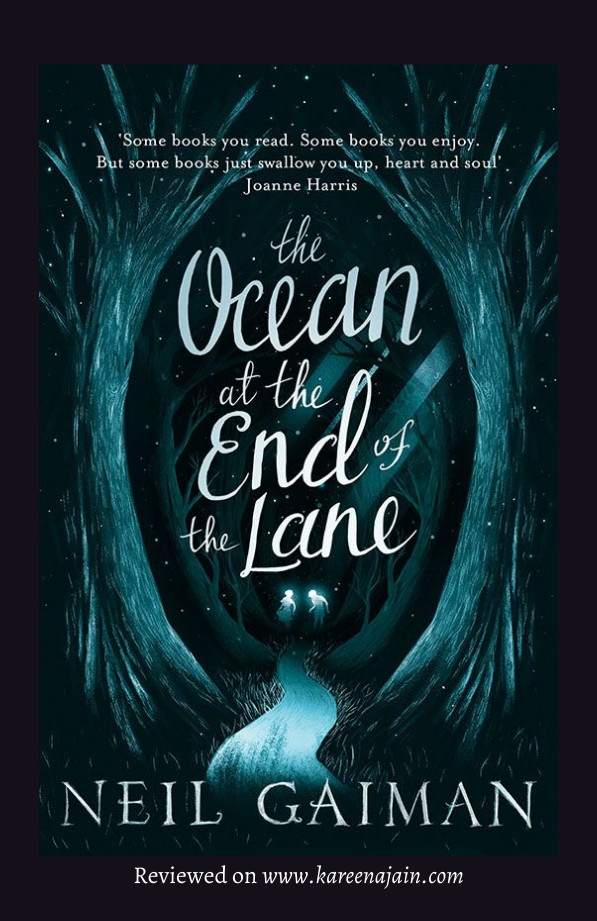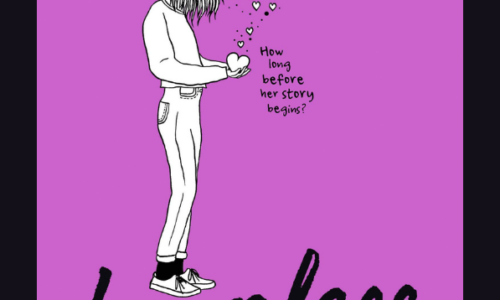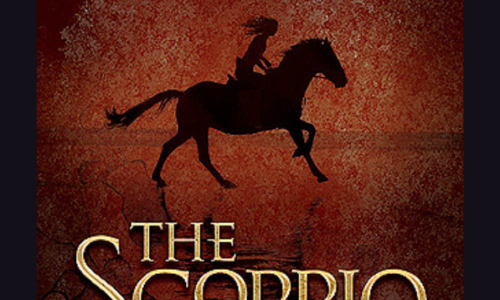“Death happens to all of us.”
The Ocean at the End of the Lane by Neil Gaiman is a deceptive novel, a simple conveyance of the terrifying truth about the things that may or may not live in the darkness and the power of stories to keep us safe from harm. In the narrator’s hometown, there is a house at the end of the lane. The property is owned by the Hempstocks. When the narrator was seven years old, the youngest Hempstock, Lettie, was five years older than he was. She lived with her mother and grandmother, claimed that the pond in their backyard was the ocean and that her family had arrived from across that very ocean. Lettie’s mother said that she was remembering their move incorrectly, and Old Mrs Hempstock would chide them both and remind them that the really old country had blown up to create the new one. When visiting his hometown for a funeral, the now middle-aged narrator turns down that lane and visits the Hempstocks, meeting only the eldest of the three. As he sits there, bemoaning his life and remembering his childhood, he remembers a certain set of events that he hadn’t previously recalled – the death of a lodger at his childhood home, and how the dead man’s one desire for money opened the doors for something huge and horrifying. The invader hurts his neighbors and tortures the narrator, and the Hempstocks intervene, revealing truths to the young boy that he could not even begin to comprehend.
“Monsters come in all shapes and sizes. Some of them are things people are scared of. Some of them are things that look like things people used to be scared of a long time ago. Sometimes monsters are things people should be scared of, but they aren’t.”
Hauntingly beautiful and delicately framed, this novel is a break away from everything you may know. It folds reality on itself, bends and twists the arbitrary rules of what actually is to create a tale that is fantastical and scarily real all at once. As he reminisces on the strange events he does not remember, the events he never remembers except for when he returns to the Hempstocks’ place, the narrator explores the truth of childhood and the unshakeable self-assurity of youth. He recalls being faced with eldritch horrors that are not possible, not even from the depths of his favourite novels. He relives the dread induced by the carrion-cleaners that are called, the incredible power shown by Old Mrs Hempstock that day, and the painful sacrifice of the wonderfully sweet Lettie Hempstock. Vivid prose and careful alignment are present in this melancholic work, as Gaiman reflects on the impossibility of youth, a justifiable fear of the unseen fears, and the strength of myths and wisdom against the cruelty of monsters of all different shapes and sizes.
“You don’t pass or fail at being a person, dear.”
Available for purchase at:



